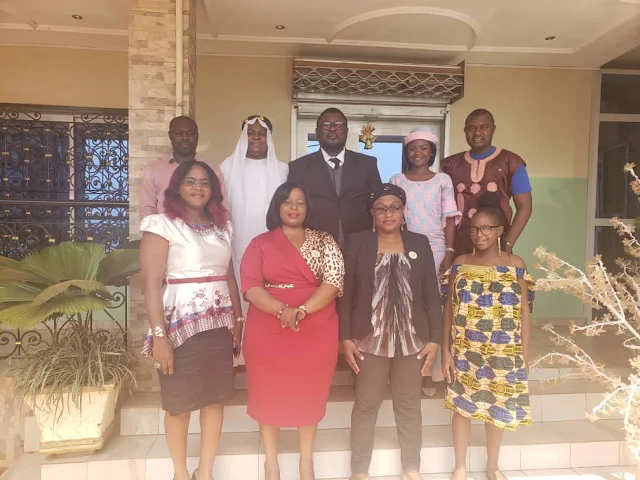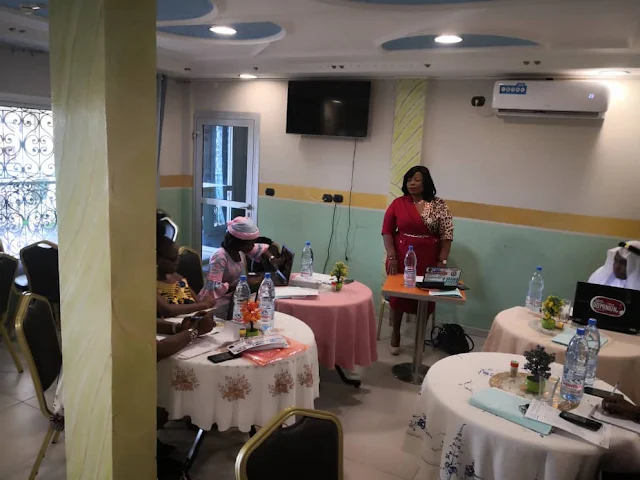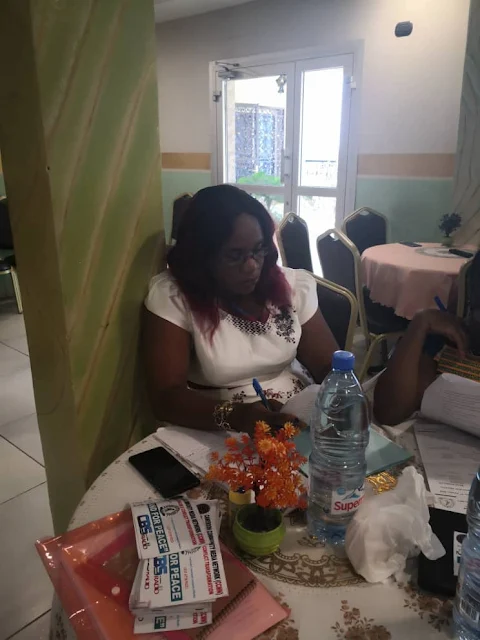Executive Members of the Cameroon Community Media Network (CCMN), have developed and adopted solid strategies that will facilitate the extension of the network to different communities across the national triangle.
Meeting in Yaounde, recently, the Coordinators of the six different chapters (Northwest, Southwest, Centre, Littoral, West, and Grand North), plus executive members of the National Office, brainstormed on different ways suitable for bringing peace journalism to media persons across the 10 regions of Cameroon.
“Since Dec 5, 2019, that the different chapters were created, the coordinators have been busy selling the objectives of the Network to heads of Community Media, and journalists in their respective regions. During this meeting, we reviewed how much work was done already, and what needs to be done. For the later, we plan to officially launch the new chapters this January, hold pieces of training on production of peace messages, as well as non-conflict reporting,” Rosaline Obah, National Coordinator, explained.
The strategies include sensitisation, capacity building, empowerment sessions, amongst others.
“This 2020, we intend to carry out more capacity building for chapter members on different aspects of peace journalism and community reporting. We shall also build the capacities of Chapter members on project writing, as well as empower them with different tools to ease their work as peace journalists,” Madam Obah added.
The Coordinators of the different Chapters indicated that amidst the challenges they face in mobilising community media practitioners, they are multiplying efforts to form vibrant chapters.
“We shall be launching our chapter fully on Monday, January 20. We have succeeded in mobilising more than 20 community journalists and owners of media organs in the Littoral Region. It’s not been easy, but I must attest that we are on a good footing,” Regina Etaka, CCMN coordinator for the Littoral, said.
The executive members used the occasion to harmonise the plan of action of all the chapters, as well as review the new CCMN Charter.
On December 5, 2019, CCMN relaunched its activities, extending 6 other regions, up from the two English speaking regions.
The Cameroon Community Media Network is dedicated to develop a sustainable environment for community-based media initiatives and community media practitioners and establish peace journalism and conflict-sensitive reporting as an alternative to conventional reporting.
It aims to advance the capacities and rights of community media practitioners (journalists, volunteers, technicians, and management) in Cameroon while strengthening journalists and community media houses to respond to the communication needs and demands of the communities.






Comments